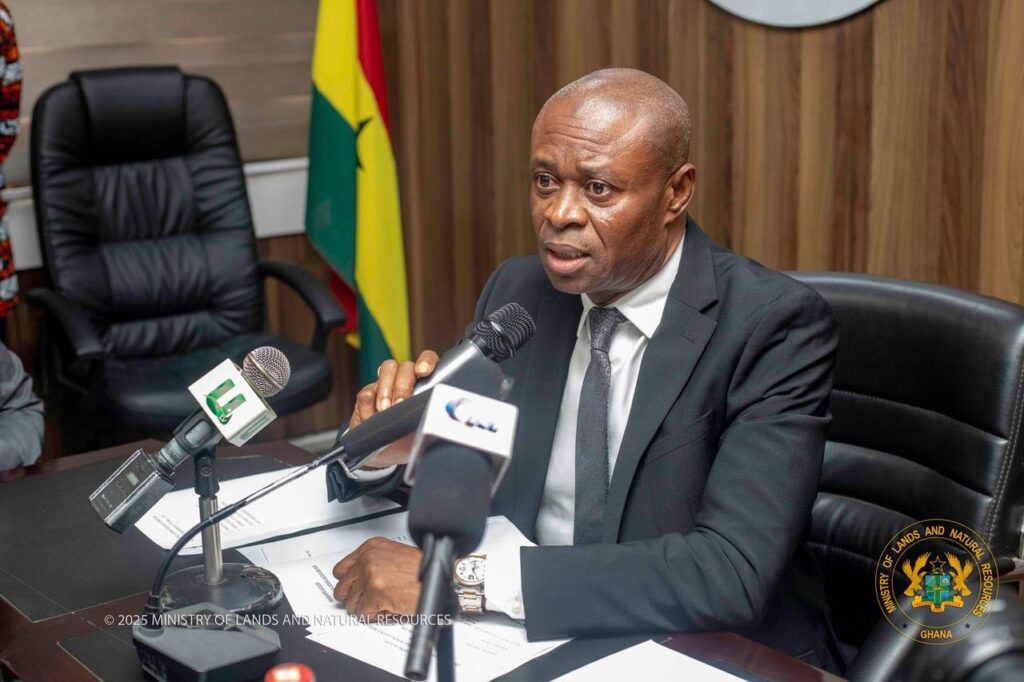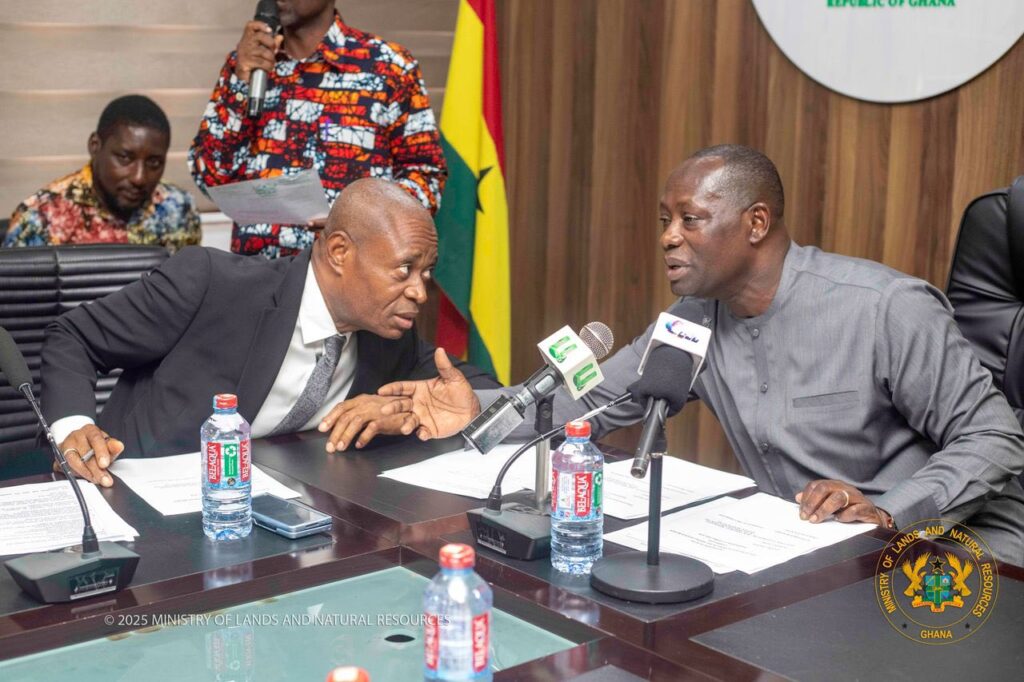At long last, a serious effort to sanitize Ghana’s small-scale mining sector appears to be underway.
The Minister for Lands and Natural Resources, Hon. Emmanuel Armah-Kofi Buah, MP, has taken a decisive step by inaugurating a Nine-Member Small-Scale Mining License Review Committee.
The mandate is clear: to conduct a comprehensive audit of all small-scale mining licenses currently in operation across the country.
The committee, chaired by Deputy Minister Hon. Sulemana Yusif, has been tasked with scrutinizing the licensing process to ensure strict compliance with legal, environmental, and financial regulations.
The focus areas include examining whether licenses were properly acquired, whether operations meet environmental preservation standards, particularly regarding water bodies, forest reserves, and land, and whether permitting fees have been fully paid.
For decades, the small-scale mining sector, though legally recognized and economically vital, has been entangled in controversy.
Issues of illegal mining (“galamsey”), environmental destruction, and regulatory lapses have marred the sector’s reputation.
Hon. Armah-Kofi Buah’s move signals not just a bureaucratic exercise, but a bold attempt to restore integrity and sustainability to an industry critical to many livelihoods and the national economy.

In his remarks at the inauguration, Hon. Armah-Kofi Buah underscored the committee’s pivotal role in restoring public trust and ensuring the sector delivers maximum benefit to the country.
“Your work will expose irregularities in the licensing regime, help restore confidence, and ensure optimum benefits from the sector”.
Hon. Emmanuel Armah-Kofi Buah, Minister for Lands and Natural Resources
Notably, he also showed flexibility by indicating his openness to reviewing the committee’s two-month timeline if necessary — a recognition of the complexity of the task at hand.
Hon. Armah-Kofi Buah’s willingness to balance deadlines with diligence suggests he is serious about delivering results, not just headlines.
For his part, Hon. Sulemana Yusif, Chairman of the Committee, assured the Minister and the nation of a rigorous and impartial process.
“We recognize the trust placed in us and will ensure transparency to boost investor confidence”.
Hon. Sulemana Yusif, Deputy Minister and Chairman of the Committee
The composition of the committee drew expertise from the Ministry of Environment, Science, Technology and Innovation; the Minerals Commission; the Environmental Protection Agency (EPA); and the Water Resources Commission.

Others include the Forestry Commission, the Office of the Attorney General, and even the Association of Small-Scale Miners itself, which reflects a commendable attempt to incorporate both regulatory and industry perspectives.
The minister’s decision follows the latest heightened public calls for more robust and action-oriented measures in the new NDC administration’s effort to address the activities of illegal mining.
In recent times, the Ministry, acting on behalf of the government, terminated all post-December 7, 2024, mining licenses issued by the NPP administration and announced the end of all community mining schemes instituted by the previous government.
As part of efforts to reclaim Ghana’s natural resources, the government has successfully recovered seven out of nine forest reserves that were previously under the control of heavily armed illegal miners.

These recovered reserves include Jimira & Jimira Extension, Afao Hills, Tano Anwia, Ofin Shelterbelt, Anhwiaso East & Anhwiaso South, and Subri, while work is currently underway to reclaim the remaining two reserves, Asenayo and Desiri.
A joint military-forestry operation has already led to the seizure of 100 excavators, 3 bulldozers, and 4 vehicles used for illegal mining.
While the new administration has been commended for some significant steps and measures, activists like Barker-Vormawor argue that policy declarations must be backed by demonstrable urgency and citizen participation.
Hence, the success of the latest initiative will depend not only on the thoroughness of the review but also on the government’s willingness to act decisively on the committee’s findings.
Identifying irregularities is one thing; uprooting entrenched interests and enforcing reforms is another. It is no secret that in the past, some powerful figures have used political influence to protect or even perpetuate illegal mining activities.

If this review is to mean anything, it must be insulated from political interference, and its recommendations must be enforced no matter whose interests are affected.
Moreover, beyond auditing existing licenses, Ghana must look toward broader structural reforms in the small-scale mining sector.
Regular audits should become institutionalized rather than ad-hoc. Transparent, accessible public databases of mining licenses should be created so that civil society organizations, the media, and ordinary citizens can serve as watchdogs.
Clear penalties for environmental violations must be enforced, and the government must support genuine, law-abiding small-scale miners with technical training and access to credit, so they are not driven into illegality out of necessity.
The stakes are too high as Ghana’s water bodies are choking from pollution, while farmlands have been destroyed to the destruction of illegal mining.
Additionally, most rural communities, which should benefit from mining activities, have instead suffered displacement and health crises. Reversing these trends will require more than rhetoric; it demands courage, consistency, and political will.
In inaugurating this review committee, Hon. Armah-Kofi Buah has taken a critical first step. It is a welcome development, and it deserves the support of all stakeholders to succeed.
It must be the beginning of a new chapter — one where Ghana’s rich mineral resources are harnessed sustainably, responsibly, and for the benefit of all.
The small-scale mining sector has immense potential, and with strong leadership, rigorous oversight, and firm commitment to reform, it can be transformed from a source of environmental devastation into a pillar of inclusive economic growth.







